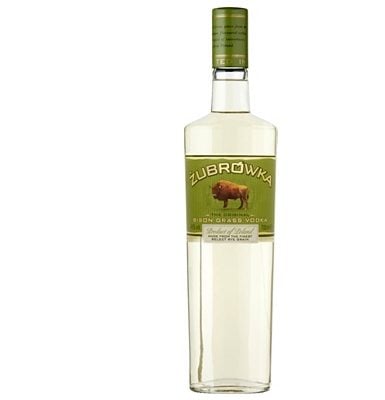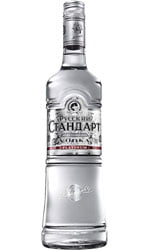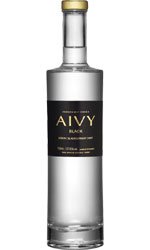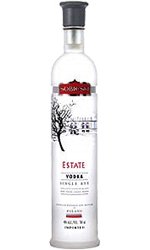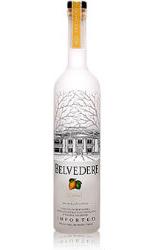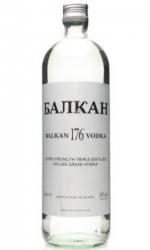Vodka
Vodka evokes strong sense memories in almost all adult drinkers. Love it or hate it, the chances are you have not tasted a carefully created and served in the way it was intended.
It is because we tend to drink bad quality vodka with more regularity than any other spirit, and in all of the wrong ways, it makes sense that we end up associating this spirit with a sore head, an industrial taste and a raucous night out.
The Vodka Belt
Historically, vodka was first produced in Eastern Europe, Russia and Sweden; however, there has been much debate as to the exact time that this spirit was first created.
Vodka was originally a lot lower in alcohol – around 15 percent proof – as was the case with other spirits; it was historically used as a medicinal tool.
Although this first incarnation of vodka was still technically distilled (as the alcohol was burned off after the initial fermentation) it remained a largely overlooked spirit until alchemists learned how to correctly distil the spirit which leads to its spike in vodkas ABV.
In the nineteenth century triple distillation was developed along with filtering out the vodkas impurities and creating the neutral tasting spirit that we enjoy today, coming in at anywhere between 40 and 80 percent proof.
Different vodka producers tend to filter their spirit with different materials, however common filters include cotton cloth, quartz, charcoals and silver.
This process is repeated to remove the vodka’s impurities, and it is because of this repeated filtration, good quality vodka loses the harsh taste and after-burn of it’s cheaper counterparts.
Aside from its filtration, the quality of its ingredients will greatly impact vodka’s finished flavour, so whereas traditionally vodka is made by fermenting cereal grains or potatoes, modern production has started experimenting with fruits and sure cane sugar as a means to create a purer and more refreshing spirit.
Northern Europe is widely considered as the Vodka Belt, where the consumption of this spirit is higher than any other country in the world.
How vodka is served greatly differs from place to place, however, it is still traditionally served ice cold, neat and shot back as opposed to serve with any mixer.
Find your favorite Vodka
-

Potocki – Polish Rye 70cl Bottle
€39.73 Find merchant -

Russian Standard – Platinum 70cl Bottle
€26.18 Find merchant -

Aivy – Black 70cl Bottle
€27.68 Find merchant -

Absolut – Blue 70cl Bottle
€21.37 Find merchant -

Finlandia – Mango Fusion 70cl Bottle
€26.63 Find merchant -

Todka – XS 70cl Bottle
€30.11 Find merchant -

Sobieski – Estate 70cl Bottle
€41.91 Find merchant -

Uluvka – Vodka 1.75 Litre Bottle
€88.29 Find merchant -

Hangar One – Mandarin Blossom 70cl Bottle
€35.33 Find merchant -

Firestarter Vodka – 7 Times Distilled 1 Litre Bottle
€41.76 Find merchant -

Belvedere – Cytrus (Lemon) 70cl Bottle
€44.78 Find merchant -

Balkan – Vodka 176 70cl Bottle
€57.22 Find merchant -

Stoli – Citros 70cl Bottle
€25.47 Find merchant -

The Lakes – Vodka 70cl Bottle
€36.91 Find merchant -

Lord & Lady Muck – Toffee Vodka 50cl Bottle
€23.90 Find merchant
Red Wine per Country
-

American Red Wine
-

Argentina Red Wine
-

Australian Red Wine
-

Austrian Red Wine
-

Chile Red Wine
-

English Red Wine
-

French Red Wine
-

Georgia Red Wine
-

German Red Wine
-

Greek Red Wine
-

Hungarian Red Wine
-

Italian Red Wine
-

New Zealand Red Wine
-

Portuguese Red Wine
-

South African Red Wine
-

Spanish Red Wine
-

Uruguay Red Wine
Single-Grain Vodka
Vodkas produced using one type of cereal are commonly referred to as single grain, and are generally made with higher quality ingredients, when compared to blended vodka.
The most notable single grains include Belvedere, Polugar, Ramsbury and Sipsmith and are all to be served neat and with no mixer.
Tasting notes on single grain vodkas can vary, however, there is far more scope for you to taste both subtle herbal or citrus notes after the initial warmth of vodka recedes.
Be warned that even a solid, mid-ranged cereal grain vodkas can create a harsh burn and cannot shake that instantly recognizable bitter, industrial taste.
To find the almost ethereal neutral tasting vodka, which bears no harsh flavours or unpleasant scent, try Armadale, which is a Scottish, rye-distilled vodka, as it tastes both smooth and smoky and has minimal harsh flavours or burn.
Fruit Distilled Vodka
Not to be confused with fruit infused vodkas, this simply means that the base of the spirit is either citrus or berry based fruits.
Fruit distilled vodkas do not largely taste of this base fruit, however the resulting drink is both smoother and less medicinal tasting than wheat or cereal grain vodkas, and can be vastly more pleasant when it’s drunk down as either a shot or when poured over ice.
Tasting more like a grappa than vodka, popular brand Cîroc is the best place to start when looking at exploring fruit- based vodka.
Made in France with a white grape base, its taste is fresh and surprisingly mellow for a vodka, lending itself to satisfy even the hardest of critics.

Michael Bredahl
Wine Writer
Michael is an online enthusiast, with a lot of knowledge about online marketing. Traveling around the world to hunt for the perfect wine. Latest on Sicily, where Etna has a huge impact on the taste, which is strong with a bitter aftertaste for the youngest wines, but older wines are fantastic. Drinking wine, and writing about them, are one the passions. Remember to drink responsibly 🙂
Are you a Copywriter?
We have a lot of articles without much content, if you can do it better, you are welcome to write a nice article, and get the proper credit for that. Read more information about beeing an author, and Contact us for more information.

